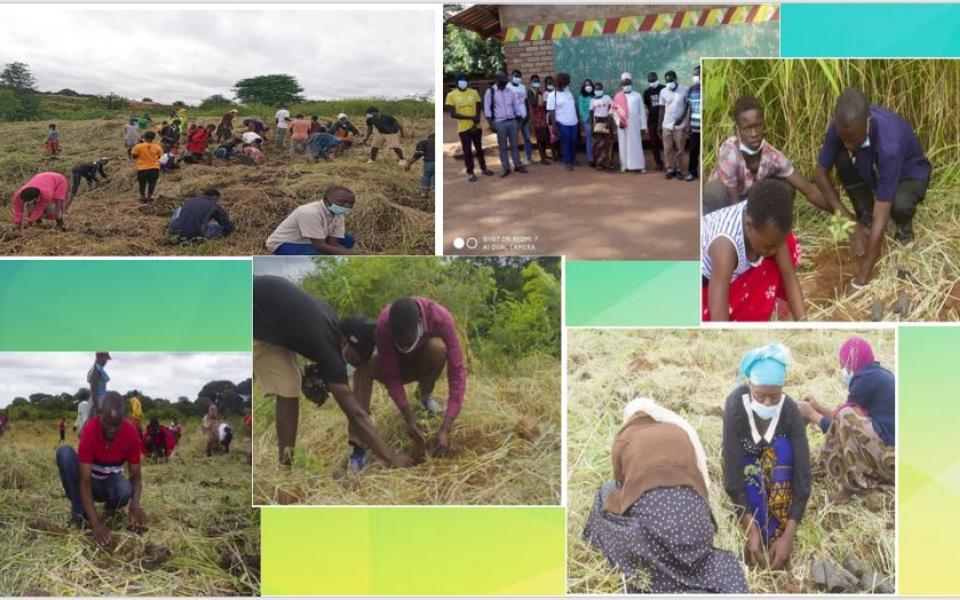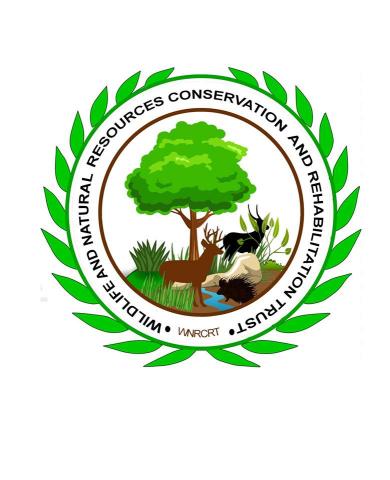Wildlife Natural Resources Conservation and Rehabilitation Trust - WNRCR Cooperation Circle partnered with Lilongwe Water Board to plant over 3000 trees to conserve and sustain a water catchment area.

Lilongwe River is one of the big rivers in Malawi (200 kilometers) running from the Dzalanyama Forest Reserve to Lake Malawi. The River has about five tributaries which are; Likuni, Katete, Lisungwe, Nanjiri
and Nathenje. The Rivers’ catchment area acts as a recreation center and habitat for diverse aquatic and terrestrial species.
The river system supplies the surrounding communities with water for irrigation and acts as the main source of raw water for treatment to Lilongwe Water Board, a statutory corporation established in 1947 and reconstituted by the act of Malawi Parliament under the waterworks act of 1995, which mandated to provide portable water for Lilongwe residents.
As a utility service provider responsible for portable water supply to Lilongwe city residents and the surrounding area, Lilongwe Water Board is facing numerous environmental challenges affecting its operations. Deforestation in the catchment area has greatly contributed to increased siltation and pollution in the river reducing the water volume available for treatment as well raising the cost of treating the water.
Cases of flooding due to heavy run-off from the bare watershed and excess water losses in summer have recently emerged as serious challenges to the Board. All these have negatively affected the functions and operations of the Lilongwe Water Board and the socio-economic well-being of the people who depend on its services.
As the cost of treating water goes high, the water tariffs also increase, resulting some people
depending on unsafe water sources since they are not able to afford safe water. Issues of hygiene and sanitation are becoming a major concern and women suffer walking long distances in search of water for
domestic use.
Wildlife and Natural Resources Conservation and Rehabilitation Trust Cooperation Circle joined hands with different stakeholders embarking on an afforestation campaign in the 2021/2022 tree planting season, from 12th March 2022 to 31st March 2022.
Some of the key stakeholders involved in both planning and planting include; Faith leaders (Christian, Muslim, and Traditionalists), Chinsapo Youth Network, Youth Innovation Centre for Change, Lilongwe Cooperation Circle, United Religious Initiatives, and the Lilongwe Water Board Environment Office. WNRCRT together with the stakeholders planted 3, 200 tree seedlings within the catchment area near the raw water intake point for the water board.
The main objectives of the intervention were to restore the degraded vegetative cover by planting indigenous trees to conserve soil and water, and to sustain and increase the availability of raw water supply to Lilongwe water board for treatment and achieve over 80% tree survival rate.
The activity also aimed at contributing to environmental cleanup by reducing the greenhouse gases from the atmosphere through carbon adsorption by the trees planted. Species planted within the period include; 1500 Acaccia Polycantha (Mthethe), 1200 Albiza Vesicolar (Mtangatanga) and 500 Faid herbia abida (Msangu). The choice of the species was because of their ability to survive harsh weather conditions, capacity to hold soil particles together, and ability to form a canopy.
A total of 124 people (68 Males and 56 Females) took part in the activity representing 55% and 45% gender representation respectively.
Lilongwe Water Board Environmental Officer, Mr. Nelson Ngoma appreciated the role played by WNRCRT CC and the stakeholders involved in promoting catchment area conservation and helping to solve the environmental challenges facing the Water Board and surrounding communities.
The work was done with support from Australian Embassy Direct Aid Program and the United Religious Initiatives URI which supported the program with resources for COVID-19 prevention materials used throughout implementation. Last year, WNRCRT planted 1000 tree seedlings with support from Southern Africa Faith Communities Environment Institute (SAFCEI).
Lilongwe Water Board requires about 40, 000 tree seedlings to cover the remaining bare land in the catchment, appealing for continued support to reach the desired target.

